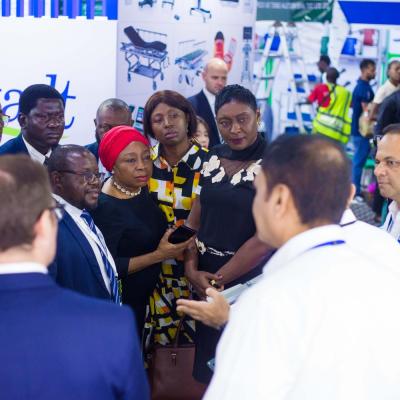Frontpage News (3259)
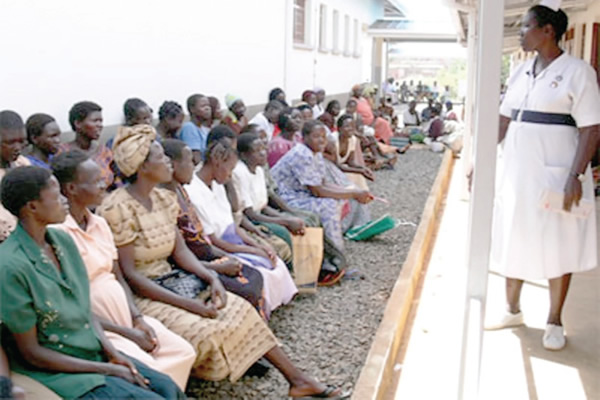 In a move to commence full operation of the National Health Act, the Federal Ministry of Health has constituted a committee to produce a guideline for the implementation of the provisions of the Act. News of the inauguration of the committee was disclosed by the Director, Health Planning Committee, Research and Statistics of the ministry, Dr. Ngozi Azodo in a presentation to the newly established Health Journalist Academy in Lagos recently. Dr. Azodo who is the secretary of the committee told the journalist that the Act is expected to establish a framework for the regulation, development and management of a National Health System, to set standards for rendering health services in the country. The National Health Bill was signed into law by former president Good luck Jonathan on October 31, 2014 and hailed by major stakeholders in the health sector as the solution to the nation’s appalling health system.
In a move to commence full operation of the National Health Act, the Federal Ministry of Health has constituted a committee to produce a guideline for the implementation of the provisions of the Act. News of the inauguration of the committee was disclosed by the Director, Health Planning Committee, Research and Statistics of the ministry, Dr. Ngozi Azodo in a presentation to the newly established Health Journalist Academy in Lagos recently. Dr. Azodo who is the secretary of the committee told the journalist that the Act is expected to establish a framework for the regulation, development and management of a National Health System, to set standards for rendering health services in the country. The National Health Bill was signed into law by former president Good luck Jonathan on October 31, 2014 and hailed by major stakeholders in the health sector as the solution to the nation’s appalling health system.
According to the analysts the Act is set to achieve the Universal Health Coverage and meet the Millennium Development Goal (MDGs) target. The Act also provides for the elimination of quacks from professionalism and provides basic health funds needed by Nigerians. A major highlight of the provisions of the health law is the establishment of Basic Health Care Provision Fund to be financed from Federal Government Annual Grant of not less than 1% of its Consolidated Revenue Fund and grants by international donor partners. The funds will be managed by the National Primary Health Care Development Agency (NPHCDA), the National Health Insurance Scheme (NHIS) and the Federal Ministry of Health. According to the provisions of the Act, 45% of the fund will be disbursed through each state and the FCT Primary Health Care Development Board for the provision of essential drugs, vaccines and consummates; 50% will be managed by NHIS while the remaining 5% is managed by the health ministry for the provision of basic minimum package of health facilities.
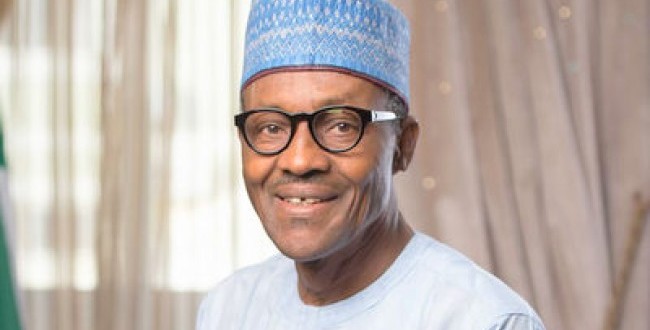 A total of 44 countries have signed Economists’ Declaration on Universal Health Coverage (UHC) – the declaration demands that every world leader increases spending on universal health coverage for their people. The economists gathered at the instance of The Rockefeller Foundation and led by Lawrence H. Summers, Charles W. Eliot University Professor and President Emeritus at Harvard University as global leaders prepare to enact the Sustainable Development Goals (SDGs) for the next 15 years that includes universal health coverage among its targets. According to media report, those in attendance declared that investments in UHC will ensure health systems can withstand shocks from disease outbreaks like Ebola, and prevent millions of people from falling into poverty paying for the health services they need and that everyone being able to obtain high quality essential health services without suffering financial hardship is right, smart and affordable.
A total of 44 countries have signed Economists’ Declaration on Universal Health Coverage (UHC) – the declaration demands that every world leader increases spending on universal health coverage for their people. The economists gathered at the instance of The Rockefeller Foundation and led by Lawrence H. Summers, Charles W. Eliot University Professor and President Emeritus at Harvard University as global leaders prepare to enact the Sustainable Development Goals (SDGs) for the next 15 years that includes universal health coverage among its targets. According to media report, those in attendance declared that investments in UHC will ensure health systems can withstand shocks from disease outbreaks like Ebola, and prevent millions of people from falling into poverty paying for the health services they need and that everyone being able to obtain high quality essential health services without suffering financial hardship is right, smart and affordable.
A total of 267 signatories signed the agreement and Nigeria’s representatives include Ayodeji Ajiboye, Shehu Rano Aliyu, Nkata Chuku, Musa Ibrahim Jega, Kenneth Ojo, Olumide Okunola, Obinna Onwujekwe, Chibuzo Opara, Afees Adebare Salisu and Francis Nwachukwu Ukwuije. Other signatories include: Nobel Laureates Joseph Stiglitz, Kenneth Arrow, Alvin Roth, Vernon Smith and Christopher Pissarides; the current and former chief economists of the World Bank, Kaushik Basu and Justin Yifu Lin; noted health economists Anne Mills and Victor Fuchs; and renowned economic thinkers Thomas Piketty, Linah Mohohlo, Bjørn Lomborg, Tony Atkinson, John Irons and Paul Collier. The signatories said they are concerned that the United Nations (UN) will adopt the Sustainable Development Goals – an ambitious new agenda set to be ratified next week – without considering what’s affordable, achievable, and most valuable.
Doctors Call For Special Children’s Hospitals As Congenital Diseases Surge
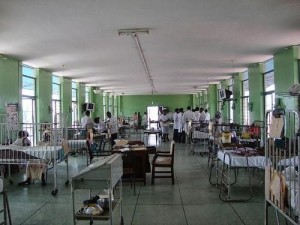 The Association of Paediatric Surgeons of Nigeria (APSON) wants government to set up hospitals that would specifically manage the care and treatment of children in Nigeria.It said that in many cases, there are congenital anomalies- diseases that children are born with- which cause them to become traumatised. APSON president, Dr James Adeniran, stated this yesterday at its scientific conference held in Abuja noting that about 40 per cent of their work has do with these anomalies such as children who don’t have anus and cannot pass stool properly. “These are special diseases and should be treated in proper paediatric centres,” he said. Also, Dr Rajesh Dey, a Consultant Liver Transplant Surgeon at the Indraprastha Apollo Hospital, Delhi in his speech said there is an upsurge in the number of reported paediatric liver diseases because of improved diagnostic techniques. He said: “There is upsurge in terms of number because more and more children are getting detected with liver disease.”
The Association of Paediatric Surgeons of Nigeria (APSON) wants government to set up hospitals that would specifically manage the care and treatment of children in Nigeria.It said that in many cases, there are congenital anomalies- diseases that children are born with- which cause them to become traumatised. APSON president, Dr James Adeniran, stated this yesterday at its scientific conference held in Abuja noting that about 40 per cent of their work has do with these anomalies such as children who don’t have anus and cannot pass stool properly. “These are special diseases and should be treated in proper paediatric centres,” he said. Also, Dr Rajesh Dey, a Consultant Liver Transplant Surgeon at the Indraprastha Apollo Hospital, Delhi in his speech said there is an upsurge in the number of reported paediatric liver diseases because of improved diagnostic techniques. He said: “There is upsurge in terms of number because more and more children are getting detected with liver disease.”
According to Dey, the recent increases are caused by better diagnostic equipment and more trained personnel that can identify kids who have liver disease as they used to go unnoticed and unreported in the past. “Lifestyle changes affect mostly the adults and the kids are spared from that. It is mostly caused by inborn metabolic defects, some enzymes in their system and the liver doesn’t go properly,” he noted. Dey said they are in Nigeria to seek the collaboration of Nigerian paediatricians to setup children liver transplant centres to curb the increasing cost paid by parents seeking such services abroad. “If we can build up a centre in Nigeria, the cost would go down by half, and the child would not have to travel so far in a foreign land,” he said.
Source:Ladership Online
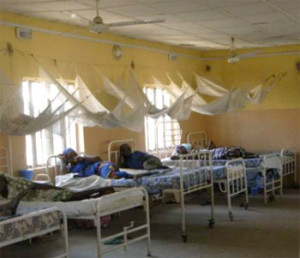 A senior consultant cardiologist, Apollo Hospital, India, Dr. Rajeeve Kumar Rajput, has called for the establishment of more coronary health facilities in the Federal Capital Territory (FCT) in view of the rising incidences of coronary diseases globally. Speaking to journalists yesterday in Abuja, the expert decried the low rate of cardiology hospitals, saying the ones available are not commiserate with the city population. He said: “I spoke to the doctors who came here and discovered that there are only two hospitals offering cardiology services with one centre doing it sometimes. It is not routinely available in Abuja with about 4 million populations. If it were in a developed country we’ll need to have about 12 to 15 cardiology hospitals to take care of cardiac problems.”
A senior consultant cardiologist, Apollo Hospital, India, Dr. Rajeeve Kumar Rajput, has called for the establishment of more coronary health facilities in the Federal Capital Territory (FCT) in view of the rising incidences of coronary diseases globally. Speaking to journalists yesterday in Abuja, the expert decried the low rate of cardiology hospitals, saying the ones available are not commiserate with the city population. He said: “I spoke to the doctors who came here and discovered that there are only two hospitals offering cardiology services with one centre doing it sometimes. It is not routinely available in Abuja with about 4 million populations. If it were in a developed country we’ll need to have about 12 to 15 cardiology hospitals to take care of cardiac problems.”
He, however, noted that health in all developing countries do not get as much money as it should, noting that the world’s renown health specialist state, Delhi in India, was in the same state about 10 to 15 years ago. “What we have today is a general reflection of the development of the economy. When you have better economy, better education and infrastructure, better hospitals will naturally come up. There is no country in the world which does not have good facilities and good hospitals, the two go together.” Rajput also added that a lot needs to be done to train local doctors in Abuja, saying, “The information I have is that there are only two big cardiac centres here and the two are not offering the best services; there is room for improvement.”
 The Medical Director, Kleinburg Medical Centre, Lagos, Dr. Akeem Anifowoshe, has said that Nigeria needs more primary health facilities to reduce its burden of infectious and non-communicable diseases. Anifowoshe, who spoke at the inauguration of the centre and Beacon Smile Clinic in Lagos, noted that the availability of more family health physicians would also ensure early detection and treatment of diseases. According to him, a family physician is the first line of doctor that takes care of the health challenges of individuals and has their medical history that will be helpful in emergencies. He said, “In developed countries, when you are sick, you do not have to go to a big hospital. You get a greater percentage of the care you need from the family physician at the primary health care centre in your neighbourhood or some streets away from your home.
The Medical Director, Kleinburg Medical Centre, Lagos, Dr. Akeem Anifowoshe, has said that Nigeria needs more primary health facilities to reduce its burden of infectious and non-communicable diseases. Anifowoshe, who spoke at the inauguration of the centre and Beacon Smile Clinic in Lagos, noted that the availability of more family health physicians would also ensure early detection and treatment of diseases. According to him, a family physician is the first line of doctor that takes care of the health challenges of individuals and has their medical history that will be helpful in emergencies. He said, “In developed countries, when you are sick, you do not have to go to a big hospital. You get a greater percentage of the care you need from the family physician at the primary health care centre in your neighbourhood or some streets away from your home.
“He/ she will check blood pressure, cholesterol and glucose levels and look after your overall health to ensure that you do not come down with diseases. “It saddens me when I hear of people dying of colon cancer. That should not happen because it can be detected early with a simple blood test if the patient had gone for routine medical check.” The Chief Executive Officer, Beaconhill Smile Clinic, Dr. Oluwaseum Akinbobola, lamented that many Nigerians do not prioritise2 their health. He said, “Many will not go for dental check-up until they have lost a tooth or they can no longer eat. However, that is not the right attitude. “One should go for dental check up at least twice a year so that oral problems can be picked up early. “ If you do the right thing, you do not need to lose any of your tooth. But the average 70-year-old man has lost two or three teeth because they did not take oral health seriously.”
Source:Punch Online
USAID Lab Ebola Team seeks innovative solutions to strengthen interoperability of Health information Systems
 The U.S. Global Development Lab’s Ebola Team of the U.S. Agency for International Development(USAID) recently called for expression of interest from organizations that have innovative solutions that can strengthen interoperability of Health Information Systems in West Africa. Find the official notice below: Strengthening Health Information Systems toward Interoperability in the West Africa Region
The U.S. Global Development Lab’s Ebola Team of the U.S. Agency for International Development(USAID) recently called for expression of interest from organizations that have innovative solutions that can strengthen interoperability of Health Information Systems in West Africa. Find the official notice below: Strengthening Health Information Systems toward Interoperability in the West Africa Region
Dear Partner
, Exciting news – the U.S. Global Development Lab’s Ebola Team has released an addendum to the Science,Technology, Innovation and Partnerships Broad Agency Announcement. The addendum is a call for Expressions of Interest (EOIs) to take part in an innovative and collaborative solution design process. The Lab Ebola Team is looking for EOIs regarding specific innovative solutions that your organization believes could strengthen interoperability of Health Information Systems (HIS) in West Africa in the wake of the Ebola outbreak. Our main objective is to co-create, co-design, co-invest and collaborate with innovators on forward-thinking solutions that demonstrate the highest potential to significantly improve recovery and development impacts. Of particular interest are opportunities that complement USAID’s strategic focus on science, technology and innovative partnerships.
Pharmacists Urge Buhari To Reconstitute Council, Fight Fake Drug Syndrome
 PHARMACISTS under the aegis of the Pharmaceutical Society of Nigeria (PSN) have called on President Mohammadu Buhari to reconstitute the Pharmacists Council of Nigeria (PCN), which was recently dissolved alongside the boards of other parastatals even as they decried the unsatisfactory and inadequate access to essential drugs and other healthcare commodities in Nigeria. President PSN, Mr. Olumide Akintayo, at a press conference, yesterday, to mark the 2015 World Pharmacy Day said the pharmacy practice environment has gotten to a most wretched level, which logically cannot afford another vacuum in terms of regulatory control. The theme of the 2015 World Pharmacy Day is “Pharmacists: Your Partner in Health.”
PHARMACISTS under the aegis of the Pharmaceutical Society of Nigeria (PSN) have called on President Mohammadu Buhari to reconstitute the Pharmacists Council of Nigeria (PCN), which was recently dissolved alongside the boards of other parastatals even as they decried the unsatisfactory and inadequate access to essential drugs and other healthcare commodities in Nigeria. President PSN, Mr. Olumide Akintayo, at a press conference, yesterday, to mark the 2015 World Pharmacy Day said the pharmacy practice environment has gotten to a most wretched level, which logically cannot afford another vacuum in terms of regulatory control. The theme of the 2015 World Pharmacy Day is “Pharmacists: Your Partner in Health.” Scientists say they are a step closer to growing fully functioning replacement kidneys, after promising results in animals. When transplanted into pigs and rats, the kidneys worked, passing urine just like natural ones. Getting the urine out has been a problem for earlier prototypes, causing them to balloon under the pressure. The Japanese team got round this by growing extra plumbing for the kidney to stop the backlog. Although still years away from human trials, the research helps guide the way towards the end goal of making organs for people, say experts. In the UK, more than 6,000 people are waiting for a kidney – but because of a shortage of donors, fewer than 3,000 transplants are carried out each year.
Scientists say they are a step closer to growing fully functioning replacement kidneys, after promising results in animals. When transplanted into pigs and rats, the kidneys worked, passing urine just like natural ones. Getting the urine out has been a problem for earlier prototypes, causing them to balloon under the pressure. The Japanese team got round this by growing extra plumbing for the kidney to stop the backlog. Although still years away from human trials, the research helps guide the way towards the end goal of making organs for people, say experts. In the UK, more than 6,000 people are waiting for a kidney – but because of a shortage of donors, fewer than 3,000 transplants are carried out each year.
More than 350 people die a year, almost one a day, waiting for a transplant. Growing new kidneys using human stem cells could solve this problem. Dr. Takashi Yokoo and colleagues at the Jikei University School of Medicine in Tokyo used a stem cell method, but instead of just growing a kidney for the host animal, they set about growing a drainage tube too, along with a bladder to collect and store the urine. They used rats as the incubators for the growing embryonic tissue. When they connected up the new kidney and its plumbing to the animal’s existing bladder, the system worked. Urine passed from the transplanted kidney into the transplanted bladder and then into the rat bladder. And the transplant was still working well when they checked again eight weeks later. They then repeated the procedure on a much larger mammal – a pig – and achieved the same results.
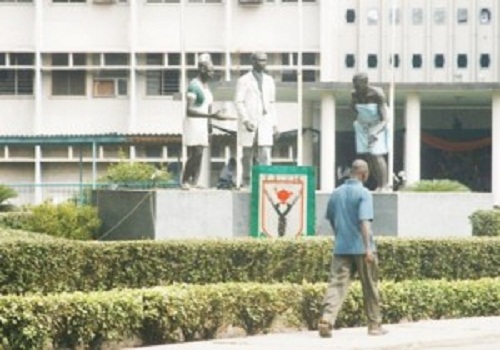 The Nigerian Union of Allied Health Professionals has urged the Federal Government to disregard any call for the privatisation of public hospitals in the country. The National President of the union, Dr. Obinna Ogbonna, who addressed newsmen at the University College Hospital, Ibadan on Wednesday, said the move would increase the cost of health care delivery beyond what the masses could afford. He also accused the Nigeria Medical Association of championing the call for privatisation of public hospitals. Ogbonna said, “Members of the union vehemently condemn the move by the government to privatise some hospitals in Nigeria as being canvassed by medical practitioners. Health care delivery is a social service that an average Nigerian should enjoy as subsidised by the government. By the time this social service is privatised, an average Nigerian will not be able to access and afford health care services.
The Nigerian Union of Allied Health Professionals has urged the Federal Government to disregard any call for the privatisation of public hospitals in the country. The National President of the union, Dr. Obinna Ogbonna, who addressed newsmen at the University College Hospital, Ibadan on Wednesday, said the move would increase the cost of health care delivery beyond what the masses could afford. He also accused the Nigeria Medical Association of championing the call for privatisation of public hospitals. Ogbonna said, “Members of the union vehemently condemn the move by the government to privatise some hospitals in Nigeria as being canvassed by medical practitioners. Health care delivery is a social service that an average Nigerian should enjoy as subsidised by the government. By the time this social service is privatised, an average Nigerian will not be able to access and afford health care services.
“It is alarming to note that some state governments have started the concession of some general hospitals to private investors, leading to loss of jobs and high cost of health care services. The union frowns on this development and calls on such states to rescind the action in the interest of peace and that of the masses.” The union also called on President Muhammadu Buhari not to appoint a member of the NMA as the health minister, saying past members of the association who had served as health ministers destabilised the sector. “Since 1985 when the late Dr. Olikoye Ransome-Kuti was appointed as health minister to the past minister, Onyebuchi Chukwu, the Federal Ministry of Health has been bedevilled with a series of industrial crisis due to poor administrative performance by the ministers.
 The registrar, Health Record Officers Registration Board of Nigeria (HRORBN), Alhaji Mohammed Mami, has criticised Nigeria’s data gathering system, saying that the data generated cannot be used for any international comparison. He said that the National Bureau of Statistics (NBS), an organ of government recognised to give information on all aspects of the nation’s economy, health, education among others, only comes out with cumulated data which are not up to international standard. In an exclusive interview with LEADERSHIP in Abuja, Mami maintained that most of the health data generated in the country are inaccurate as they are conducted by personnel who have no experience in the field.
The registrar, Health Record Officers Registration Board of Nigeria (HRORBN), Alhaji Mohammed Mami, has criticised Nigeria’s data gathering system, saying that the data generated cannot be used for any international comparison. He said that the National Bureau of Statistics (NBS), an organ of government recognised to give information on all aspects of the nation’s economy, health, education among others, only comes out with cumulated data which are not up to international standard. In an exclusive interview with LEADERSHIP in Abuja, Mami maintained that most of the health data generated in the country are inaccurate as they are conducted by personnel who have no experience in the field.
“These are people whose training does not involve the management and reporting of these data and they cannot give it a professional touch. They will not be able to carry these data from the local government level up to the state level and up to the Federal Ministry of Health where these data would be collated and become a national database,” he said. According to the registrar, the health record officers who are trained personnel that are supposed to carry out the task are not fully involved at the primary collation centres where nurses, environmental health officers, community health workers hold sway. He said, “Out of the 34,000 health facilities in the country, you probably don’t have any facility that is using this data collation form designed by the Federal Ministry of Health because the primary officers that are supposed to be involved in the keeping of these data are not initially involved.”
More...
Nigeria Contributes Highest Contingent To AU Ebola Support Team – FG
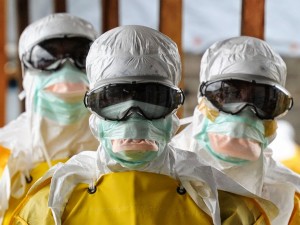 The federal government has disclosed that Nigeria contributed the highest number of medical personnel to the African Union (AU) Ebola Support Team to some of the West African states ravaged by Ebola. The permanent secretary of the Federal Ministry of Health, Linus Awute stated this when the remaining seven Nigerians left in Sierra Leone returned to Nigeria after a successful response activity to the Ebola victims of the country. The team arrived at the Nnamdi Azikiwe International Airport, Abuja yesterday. Their return comes four months after an initial 185 returned last May. The team comprising of medical doctors, laboratory scientists and other related experts left Nigeria last December.
The federal government has disclosed that Nigeria contributed the highest number of medical personnel to the African Union (AU) Ebola Support Team to some of the West African states ravaged by Ebola. The permanent secretary of the Federal Ministry of Health, Linus Awute stated this when the remaining seven Nigerians left in Sierra Leone returned to Nigeria after a successful response activity to the Ebola victims of the country. The team arrived at the Nnamdi Azikiwe International Airport, Abuja yesterday. Their return comes four months after an initial 185 returned last May. The team comprising of medical doctors, laboratory scientists and other related experts left Nigeria last December.
According to Dr Sani Gwarzo, Director Of Port Health Services at the Ministry of Health, who represented the permanent secretary, the Nigerian support to the AU Ebola support wasn’t just substantial, but catalytic in encouraging other African countries to join the effort. He said: “Nigeria has contributed the highest in terms of personnel deployment to both Sierra Leone and Liberia. and about 185 of the over 200 deployed personnels had earlier returned to the country, who have all been monitored and certified to be ebola free. “Same process would also be adopted for these final seven who have just returned from sierre leone.
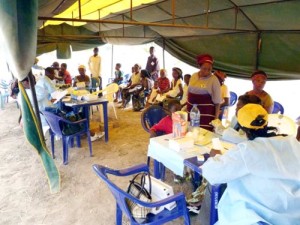 Dr Bola Oyeledun, the Chief Executive Officer, Centre for Integrated Health Programme (CIHP), has raised alarm over the high rate of new HIV infections in Nigeria. Oyeledun said this at a one-day stakeholders’ workshop in Makurdi on Monday. She that the new infections were recorded mostly among youths of between the ages of 20 and 29. However, she said that zero infection for HIV was achievable, especially among the youths, if they are adequately enlightened on their vulnerability, adding that the focus should be on treatment as prevention. She further said that the goal was in line with the global attention which is aimed at reducing new infections as well as other bottlenecks that constitute impediment to achieving the set target.
Dr Bola Oyeledun, the Chief Executive Officer, Centre for Integrated Health Programme (CIHP), has raised alarm over the high rate of new HIV infections in Nigeria. Oyeledun said this at a one-day stakeholders’ workshop in Makurdi on Monday. She that the new infections were recorded mostly among youths of between the ages of 20 and 29. However, she said that zero infection for HIV was achievable, especially among the youths, if they are adequately enlightened on their vulnerability, adding that the focus should be on treatment as prevention. She further said that the goal was in line with the global attention which is aimed at reducing new infections as well as other bottlenecks that constitute impediment to achieving the set target.
Oyeledun said the country has been segmented into 32 priority local government areas with the highest HIV prevalent rates in five states, including Benue, Nasarawa, Cross River, Lagos and Akwa Ibom. “It is a like a war room approach. There is need to employ the use of biological monitoring, improve quality of care and regiment. The goal standard means that every patient must get HIV test. “The quality of service delivery must be of high standard and should be available. We must engage the youths positively. “As it has done for Polio, so we must do same for HIV to reduce it to the barest minimum,” said the official. Oyeleduncommended stakeholders in the state for the positive job they are doing in scaling down the infection, urging the leadership of CIHP in the state not to relent in ensuring the drastic reduction of the disease.
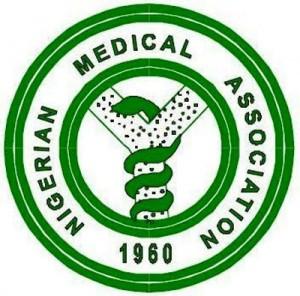 As Nigeria marks her 55th independence anniversary today, the Nigerian Medical Association (NMA) says the greater part of the country’s health history is replete with one of the worst health indices in the world since 1960. The NMA president, Dr Kayode Obembe said such outcomes include woes, travails, lamentations and buck passing without effective remediation. He stated this in a statement yesterday ahead of today’s independence celebration while calling for a paradigm shift for the health of all Nigerians. According to him, the failure to establish world class health system is a major factor causing the retardation of Nigeria’s development, which is in keeping with the dictum that ‘health is wealth’. He said “We also observe that the country has never lacked effective recommendations to mitigate our crippling socio-economic, political and developmental woes, rather, poor leadership and poor implementation have been responsible for the uninspiring status of the nation in the global development circle.”
As Nigeria marks her 55th independence anniversary today, the Nigerian Medical Association (NMA) says the greater part of the country’s health history is replete with one of the worst health indices in the world since 1960. The NMA president, Dr Kayode Obembe said such outcomes include woes, travails, lamentations and buck passing without effective remediation. He stated this in a statement yesterday ahead of today’s independence celebration while calling for a paradigm shift for the health of all Nigerians. According to him, the failure to establish world class health system is a major factor causing the retardation of Nigeria’s development, which is in keeping with the dictum that ‘health is wealth’. He said “We also observe that the country has never lacked effective recommendations to mitigate our crippling socio-economic, political and developmental woes, rather, poor leadership and poor implementation have been responsible for the uninspiring status of the nation in the global development circle.”
Obembe said notwithstanding these lapses, there is hope for a greater Nigeria, urging all Nigerians to keep faith with government and diligently contribute their quota to the change the present administration promised Nigerians. “Pessimism must give way to hope and optimism, destructive opposition and extremism to virile issue- based constructive dialogue and agitation.
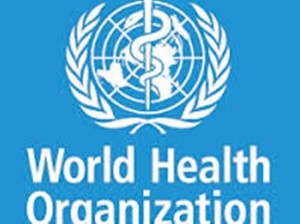 The World Health Organization (WHO) has revised its HIV guidelines to recommend that anyone who tests positive for the virus that causes AIDS should be treated immediately. The U.N. health agency had previously said doctors should wait to treat some people with HIV until their immune systems suggested they were getting sick. But in a statement yesterday, WHO said the new recommendations are based on recent trials that have found early treatment “keeps people with HIV alive, healthier and reduces the risk of transmitting the virus.”
The World Health Organization (WHO) has revised its HIV guidelines to recommend that anyone who tests positive for the virus that causes AIDS should be treated immediately. The U.N. health agency had previously said doctors should wait to treat some people with HIV until their immune systems suggested they were getting sick. But in a statement yesterday, WHO said the new recommendations are based on recent trials that have found early treatment “keeps people with HIV alive, healthier and reduces the risk of transmitting the virus.”
The new guidance means that all 37 million people with HIV globally should be offered immediate treatment, a prospect that may be unrealistic in poor countries, where many patients are still unable to get medicines. Last year, only about 15 million people with HIV were being treated. WHO says the sickest


